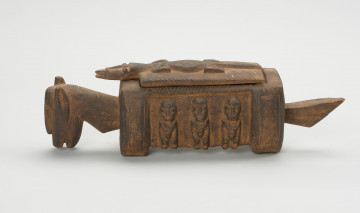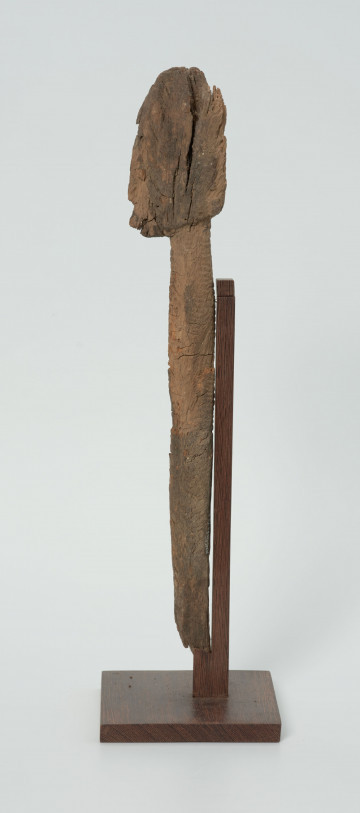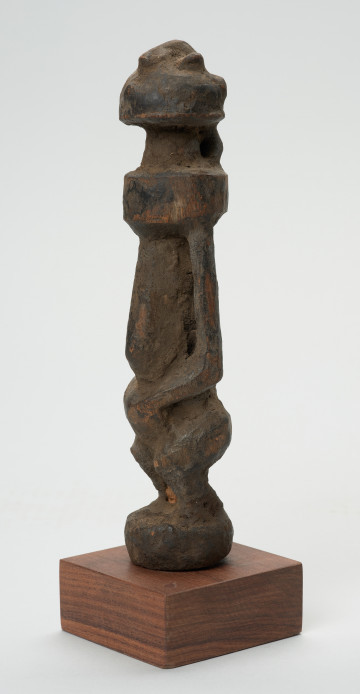
Nommo Ark
między 1951 — 2000
National Museum in Szczecin
Part of the collection: Collection of Dogonian art
Nommo are the most important deities in Dogon mythology. There are many different myths about their birth and function. One of them states that at the beginning of the process of creation of the universe, the god Amma called into existence two pairs of male twins called Nommo Anagonno: Nommo Die, Nommo Titiyayne, Ogo and O Nommo. The first of these, Nommo Die (great Nommo) became Amma's companion. He now resides with him in heaven and acts as his governor. He is responsible for the rains. The Dogon say that they feel his presence during storms, when lightning appears in the sky. They call the rainbow nommo sizu, which translates as the way of Nommo. Although Nommo Die has important functions in heaven, he is also the guardian of entities that exist on earth, especially crops. Nommo Titiyayne (the messenger of Nommo) is, in turn, the guardian and protector of the great Nommo. He also serves Amma by carrying out his commands and bears the title polugelene, i.e. sacrificer (one who holds the sacrificial knife). Ogo, later renamed Yurugu, rebelled against his creator and brought disorder to a world just in the process of being created. His downfall is reflected in the form of a small four-legged animal (a pale fox) that he took on when he arrived on Earth. O Nommo (Nommo of the Swamp) as the last of Nommo Anagonno was sacrificed to restore order and reorganise the universe after a period of chaos resulting from Ogo's irresponsible actions. He was later reborn in human form and was sent to Earth together with his human ancestors. There he regained his original form, lived in reservoirs and watercourses and gave birth to numerous offspring.
Ewa Prądzyńska
Author / creator
Dimensions
cały obiekt: height: 36 cm, width: 5 cm
Object type
figure
Creation time / dating
Creation / finding place
Identification number
Location / status

między 1951 — 2000
National Museum in Szczecin

między 1901 — 1950
National Museum in Szczecin

między 1951 — 2000
National Museum in Szczecin
DISCOVER this TOPIC
National Museum in Szczecin
DISCOVER this PATH
Educational path